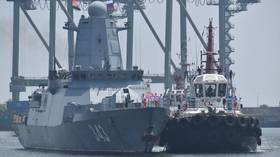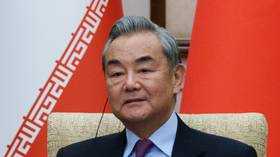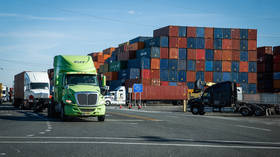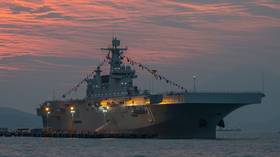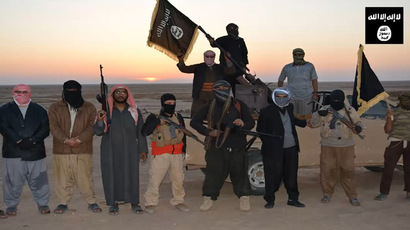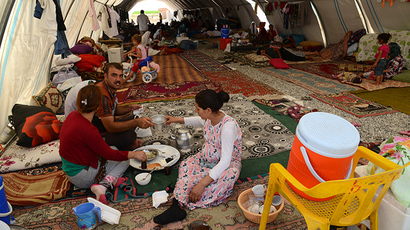EU backs plans by member states to arm Kurds in Iraq
The EU’s foreign affairs council has said after a meeting in Brussels that some of the bloc's members will respond to the Iraqi Kurds' call for military aid, given they have Baghdad’s consent. The EU also reiterated its commitment to Iraqi unity.
Prior to the EU statement France said it will send weapons to the Kurds. France’s Foreign Minister Laurent Fabius said he had called for the meeting in Brussels Friday to push for more European help for the Kurds and the Iraqis in their fight against Islamic State militants.
“I asked for this meeting so that all of Europe mobilizes and helps the Iraqis and the Kurds,” he said on arriving in Brussels.
Italy and the Czech Republic have also backed the idea. While Germany and Holland have said they can’t rule out the idea as long as the Islamic State (IS) threat continues.
“The Kurds need our support. It is important for us for there to be a European agreement,” said Federica Mogherini, Italy’s foreign minister.
Defense issues are normally the territory of individual EU states but the persecution and massacre of Iraqi minorities, including the Christians and the Yazidis, has led to promises of action rather than words in European capitals.
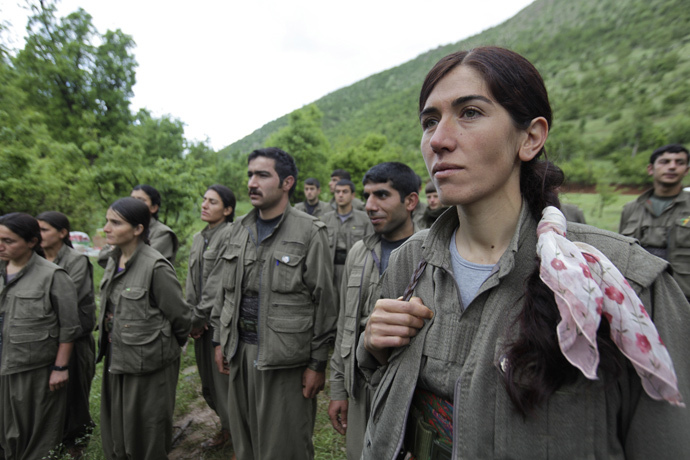
There is also a concern in EU governments that the Islamic State may be able to attract radicals from Europe who will then return home battle-hardened and eager for Jihad.
Even Germany, which is usually cautious about sending arms into battle zones, has pledged to work “full speed” to supply “non-lethal” equipment such as armored vehicles, flak jackets and helmets; Germany is one of the world’s major arms manufacturers and exporters.
“Europeans must not limit themselves to praising the courageous fight of the Kurdish security forces. We also need to do something first of all to meet basic needs,” said Germany’s foreign minister, Frank Walter Steinmeier.
Steinmeier also said he will travel to Iraq at the weekend to see what else can be done to help the Kurdish security forces.
The UK’s foreign secretary Phillip Hammond has also said that Britain will arm the Kurds.
“The UK will also consider favorably any request for supplying arms. We are already shipping ammunition and supplies from East European countries into Irbil,” he told reporters.
Arming Kurdish militias might help to fight the Islamic State,
but it could potentially be dangerous for Iraq’s integrity,
Nabila Ramdani, a Middle East commentator based in London, told
RT.
“Let’s not forget that by arming the Kurdish fighters what is
actually being encouraged is the breakup of Iraq as a sovereign
entity,” she said. “To now arm the Kurdish fighters
testifies to a tokenistic and indeed short-term solution to a
very real problem, which is to fight back against ISIS.”
There have been examples in the past when arms, supplied by the
West to seemingly the “good guys” in the Middle East eventually
landed in the wrong hands, she said.
In Syria the West backed the rebels, who then morphed into the
Islamic State, the very problem now being faced across the border
in Iraq.
“It’s a quick fix to think that you can arm a group or send
in aircraft and bomb. That doesn’t deal with the problem,”
Jonathan Steele, author of “Defeat: Why they lost Iraq” told RT.
“The main problem is that politicians don’t plan ahead,
they’re always backed into crises.”
Hundreds of thousands of Iraqis have been driven from their homes in the face of the IS onslaught and remain at risk from the jihadists, even after the siege of Mount Sinjar was broken earlier this week. The UN has now put Iraq on the same level as Syria, South Sudan and the Central African Republic, with the number of people displaced by fighting this year at one million.
Meanwhile the UN Security Council unanimously passed a resolution Friday aimed at weakening the Islamic State. It has black listed six members of the jihadist terror group and has threatened sanctions against anyone who finances, recruits or supplies weapons to the insurgents.






